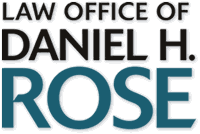30 November
2021
Things can get tricky when there’s a dispute over who’s at fault in a car accident. Witness testimony supports your claims and makes a significant difference in a car accident suit. Insurance companies often attack a witness’ credibility to avoid paying damages. You must ensure that the witness is actually “credible” if you want to get good testimony for your car accident case.
When an accident leaves you injured, please don’t wait until it’s too late to file for compensation. Most states have a statute of limitations to file a personal injury lawsuit. California has a two-year statute of limitations for such cases, which means you have two years to file from the date of initial injury (the accident). Daniel H. Rose Law Office offers complimentary consultations to those seeking legal assistance for personal injury following a car accident.
Factors Affecting Witness Credibility in Car Accident Claims
It may often be easier for the defense to cast doubt on the credibility of a witness rather than establish it. In light of that, below is a list of some attributes that make for a credible witness.
Criminal History and Moral Compass: A vital attribute of a credible witness is someone of sound moral character and a clean criminal record
Impartiality: A credible witness should be someone who is ideally neither a relative nor a friend nor in a relationship of an intimate nature with the plaintiff such as a girlfriend or boyfriend. Witnesses should be unbiased, free from personal profits (based on case outcome), and neutral (in terms of bias) in their testimony. Witnesses who are friends or family members have personal relationships with an individual involved in the accident or may stand to gain by the outcome of the case are unlikely to support your claim effectively. Also, there should be no indication that the witness has a particular opinion about any parties involved in the accident.
Clear Headedness: The eyewitness should not have been in any way impaired by alcohol or drugs at the time of witnessing the accident.
Physically Fit: The most apparent physical capability a witness should possess is a clear vision, but eyesight is not the only ability. As well as unobstructed vision, witnesses must also have a good memory and good hearing. In the case of a witness wearing glasses, contacts, or hearing aids, the use of those items needs to be established at the time the witness observed the accident.
Mental Capability: If an eyewitness suffers from a mental health issue, memory loss, or cognitive impairment, or is easily confused or disoriented, they are unlikely to be a credible eyewitness. The human mind can fail under any circumstance, and those with a psychological or mental impairment may be less likely to observe or recall a scene accurately. They may be easily discredited in court.
Not Speculative: The witness should not add additional remarks of inference to the parties involved in the accident. Witnesses need to keep their accounts as authentic and accurate as possible. Witnesses should make statements based on factual and observable evidence.
Having a non-credible witness can damage your case more than benefit it. Your car accident attorney may recommend avoiding their testimony altogether in some situations.
Increase Your Chances of Successful Litigation and a Favorable Outcome
As the goal of most insurance companies is to protect their capital, they may work against your best interests, which is why it may not be favorable to fight alone for complete and just compensation.
Whether you have recently been in a car wreck, are struggling to establish fault, are unsure of how to select a credible witness, or just want to ensure you get fair compensation, consulting with an experienced car accident attorney may be your best option.
Moreover, if you have been injured in a collision, your case can be even more complex and exhausting, which is why you should work with an experienced legal team. Contact the Daniel H. Rose Law Offices for a complimentary consultation today and get started on the road to total compensation.
